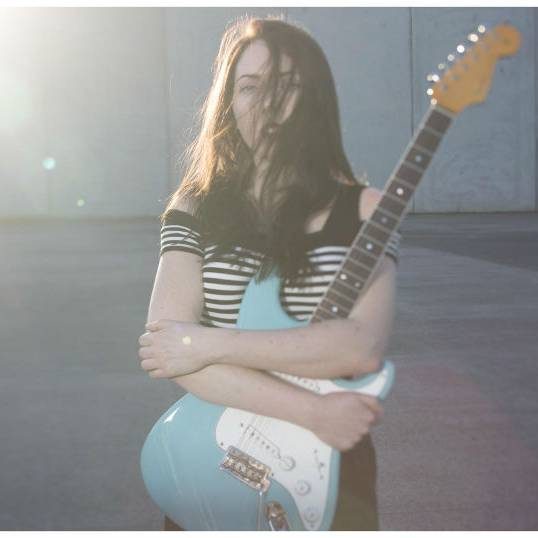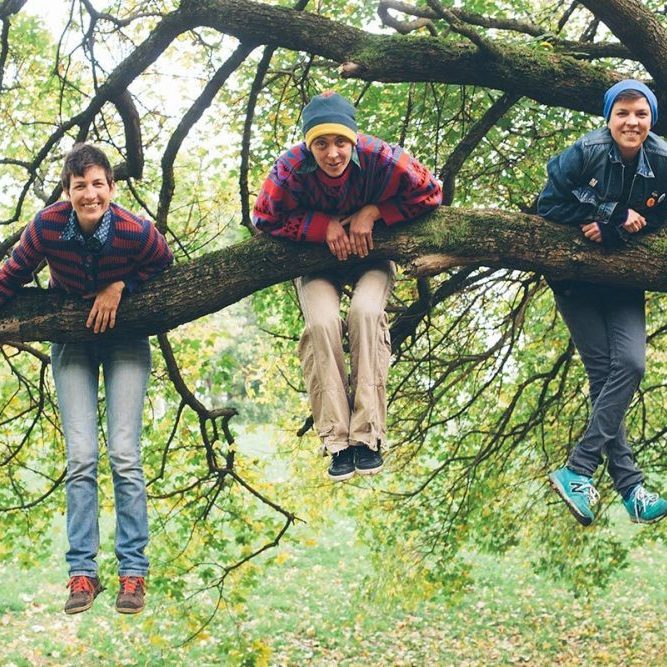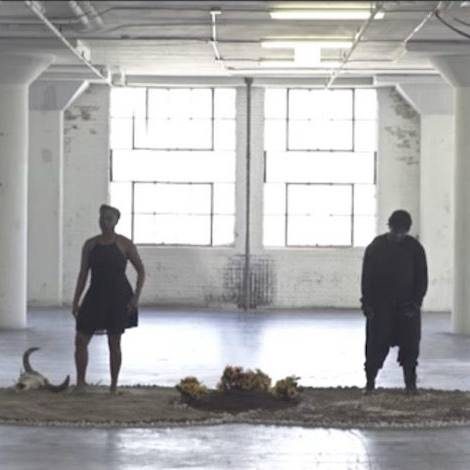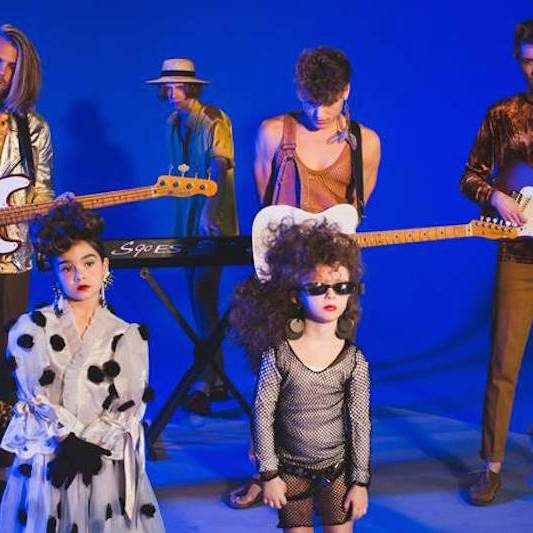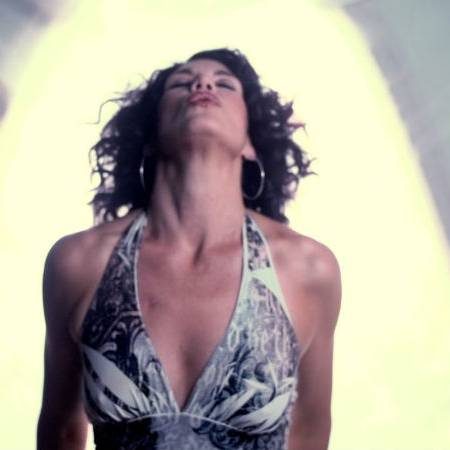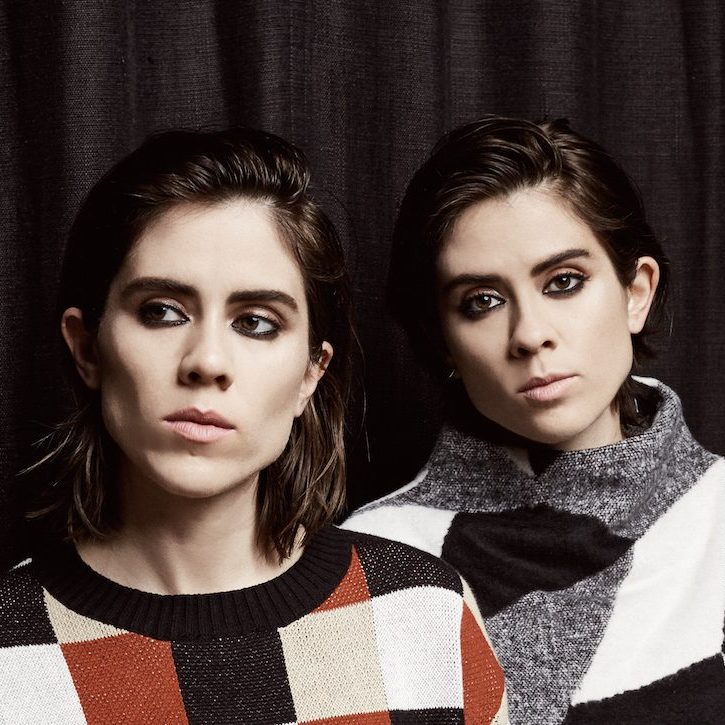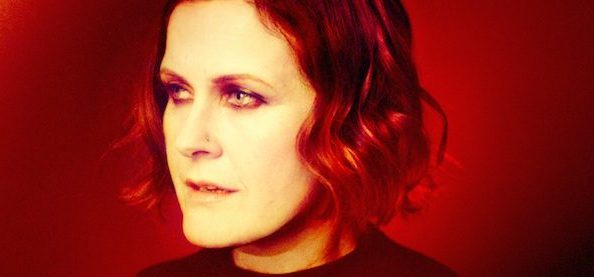
The legendary British singer Alison Moyet on otherness, her LGBTI fans, and being a middle-aged woman
Singer-songwriter Alison Moyet first found fame in the 1980s as one half of electronic duo Yaz (known in other parts of the world as Yazoo), with hits like “Only You” and “Don’t Go”. She then launched a solo career, with chart topping albums including “Alf” and “Hoodoo”.
After years of difficulties with Sony and artistic control, Moyet moved to Sanctuary Records, where her career began to experience a renaissance – her album “Hometime” went certified Gold in the UK. In 2013, “The Minutes” debuted at no. 5 on the UK Albums Chart.
In June 2017 she released her newest album, “Other,” to absolute rave reviews. She’s always been a fantastic LGBTI ally, and just today publicly denounced Margaret Court’s homophobia, ahead of her scheduled concert in Melbourne at the arena named after Court.
Here, we talk with Alison about what it is that makes her Other, her career-long LGBTI fan-base, and the experience of being a middle aged woman in the world.
Your new album is called “Other”. In its titular track you sing, “I don’t know precisely which day/ Coloured me Other/ Perchance it might have been a slow bleed.” Could you first of all talk us through how it is that you identify, or have been identified, as Other?
There are more ways that I discover every day. Initially it was that as a child I was raised to pull a cart. Someone born to French peasant sensibilities in an English new town, I found myself more aggressive and hardier than many of my peers. Later I was considered a dyke before I knew what a dyke was. I was physical and argumentative and I rucked. I was assumed unapproachable and taciturn. I was unable to focus at school or to follow the path prescribed us. I was not a young person many people wanted to live aside.
You then sing, “So I cut out whichever shape I need/ I don’t sue for rescue/ I’m as free as I’ve ever been.”
It seems that with a matured self-consciousness of your “Other” status, you’ve come to understand how not fitting in can be a benefit, giving you the freedom to present whichever version of yourself you feel like. When did you begin to realize that being unfixed was more freeing than burdensome?
I never didn’t want to fit in, I just accept it as a natural state. Later when I could decipher the rules, I understood how to mimic them. When then I recognised that many were more vulnerable than me, and without useful brawn, I found myself more adept at tenderness.
I’m as free as I have ever been. I have never been free and so now, no less so, no more. I know burdens, how to carry them, and how to build muscle on them.
Finding freedom in metamorphosis is one thing, but the album also simultaneously admits to still wanting to understand the structures that everyone else lives by – I’m thinking particularly of “The English U”. How do you balance the natural desire to fit in with the innate imperative to stand out?
We have codes, and shapes, and colours that gift us an easier ride. That I couldn’t spell or punctuate reliably, in the ‘60s, marked me as a child ‘of no discernible talent’. My mother, for whom grammar was the one aspect of her life she could control, viewed it very dimly that past participles and pronouns needed defining time and again, and she liked me where others did not.
I didn’t opt for otherness. Most of us don’t. We find it about ourselves. Later we celebrate it. I deconstruct myself relentlessly. It is not unusual to me that I want to understand what shapes others. I found myself attached to a route that was enviable, eventually. As a youth I wanted very much the norm. Obviously now I recognise that the desire to lift yourself elsewhere is entirely normal. I never needed more. Belligerence took me there coincidentally.
Several tracks on the album see a revisitation of the electronic beats that fans would have first come to associate you with in Yazoo, but they resist complete immersion in that genre. “April 10th”, for example, has you reciting the lyrics like they are spoken word poetry over a discordant, atmospheric electro backing. “Other” has a simple piano accompaniment.
How do you see the album as working as a cohesive whole, when each song can work independently? What links the tracks?
I think you will find all my work, in terms of the songs, do that. Right back to Yazoo. Everything we did was only a distant relation to the next, bar maybe 2 or three songs. The voice and the electronics married them as a collection, but they came from disparate places and we never tried to find a theme. For me the same is true of Other. Guy’s sensibilities blend the tracks sonically and my voice and lyrical approach make of them a connected body of work. Each piece is more of a short story than a chapter of a whole.
Speaking of “April 10th” – the lyrics are beautiful, and disarmingly complex. A running thread is that of the relationship between time, space, memory and perspective. You say, “A room is changed dependent on the door/ By which we enter.”
Can you tell us about experiences that have made you understand time as more than just linear?
I don’t know if I have the wits to do that. I observe. “April 10th” is a stream of continuousness. It begins to describe very literally a day. What I saw and what it made me think of and which doors it opened. I became aware that it was the same day in which someone I care for was defeated unutterably while I was deep in whimsy. My warm cave, to someone else their spider in a jar. A room is a very digestible example. Yours the garden song, mine the walls and hooks for coats to hang. Same place, different vista. Different outlook. Sometimes it is not needed to ask why. Sometimes just the contrast is enough to prove it is. Just is.
In an interview with AfterEllen a few years ago, you said that you presumed it was your personal Otherness that attracted LGBTI fans to you. No doubt it’s also the fact that you produced eighties synth, banger after banger. But “Other”, as an album, seems to me to emanate a more complex kind of queerness: queerness not just as sexuality or gender identity but as a way of living that exists outside of traditional, normative modes of being.
Did you intend for the album to reflect a more contemporary zeitgeist, in which identity is considered more fluid than it once was?
No. I have always been occupied by my identity. What it was that made me Other. Why Other discomforts us. After all, I am discomforted by Other, it is just that the Other I find is loveless. Exclusive. Aspirational. It is pubeless. It wanks over fast cars and spindly shoes. It has small feet. It is appalled by swear words and forgets its please and thank yous. This kind of Other is freakish to me.
I guess I can only speak with recognition of the LGBT community of my generation. Of a time where we all dressed for clan and had a language that needed to be partitioned.
I don’t speak for other people. Only myself and I speak what I see.
You’re now 56. A lot of older and middle-aged women speak about their disenchantment with middle age because of the social invisibility it brings. In an interview with The Guardian, you cited middle-aged female invisibility as something that you find to be a positive experience. Could you expand on that?
I was always remarkable. Even as a tot people had things to say about me that were not designed as building blocks. I have been hugely self-conscious and spent far too long in my own head. The lower ebbs of a sine wave career, to another, may have been deemed a dip in fortune, for me they have been a freedom that was lost to me at 21. The freedom to sink into my own skin and find again what I like. What I like. To get in touch with the part of yourself that simply wants to make things without someone else telling you who you should be making them for. To watch. All the things that make us different and all the things that make us the same.
When I have glimpses of a success of my own grading, a well-written song or an insightful review, I am lifted to giggling heights. When I am without these things, I am a peasant with an open field. Being old enough to understand that I am never more important than I am irrelevant and when dead as dead as everything that dies. I like the endings of all things.
Your mother was English, your father French. You’ve spoken before about embracing your European-ness, and not trying to Americanize. How do you see British identity shifting in a post-Brexit, Trumpian world?
It started for me as a simple thing. My own accent. My history. The denominations I spend. A church and state not conflated. A woman not dressed for a red carpet.
When you want to investigate what makes you choose, you need to direct your attention to the things that are yours to choose. Before you can question someone else’s identity you have to be familiar with your own. I don’t want to mimic. I shut out voices.
I don’t know where we are any of us heading. I have no belief that our lives are sacrosanct. I see no emptying of swamps, just the bottom feeders stirred up and on the surface.
You are a woman whose trade is her words, her voice, and her sound. All around the world, women’s’ experiences and opinions continue to be silenced. Do you see yourself as having a social responsibility, as a songwriter who is also a woman? What must you make heard?
Not as a songwriter do I feel the responsibility, or even as a woman with a platform, but as the woman and able matriarch I am regardless. When I feel these slights as keenly as I do and I see my daughters still having to face the same privations, and indeed women of the world far more oppression than anything I have known, it is not even a consideration I need to weigh. Yes. I join my voice to the argument as vividly as I can.
————————————-
Also, just to bring back those 80s synth feels for a few minutes, here’s one of Yazoo’s absolute bangers, “Don’t Go”.

